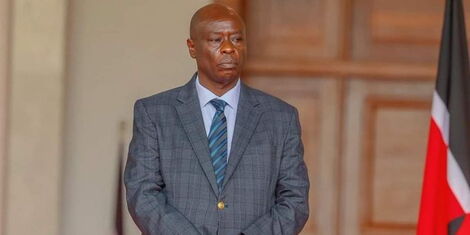Deputy President Rigathi Gachagua’s office is under scrutiny for its role in the anti-drug campaign and reforms in the coffee sector. Gachagua is accused of overlapping responsibilities, leading to an inefficient allocation of resources and duplication of efforts.
A recent session of the Committee on Administration and Internal Security in the National Assembly questioned the necessity of Gachagua’s office performing tasks already handled by other government agencies. The Anti-Narcotics Unit and the National Authority for the Campaign Against Alcohol and Drug Abuse (NACADA) are already responsible for anti-drug efforts.

DP Gachagua addressing supporters
The committee pointed out that these additional duties stretch the capacity of Gachagua’s office, detracting from their original mandate. This overlapping of responsibilities could lead to mismanagement and reduced effectiveness in combating drug abuse.
Additionally, Gachagua’s involvement in the coffee sector reforms is seen as redundant. The Ministry of Agriculture and other agencies are already spearheading these efforts. The committee recommended that Gachagua’s office focus on its core responsibilities rather than duplicating the roles of established agencies.
This scrutiny comes in the wake of the Deputy President’s recent initiatives, which have sparked controversy and debate over their effectiveness and necessity. Critics argue that these moves are more about gaining political mileage rather than addressing the issues effectively.

DP. Gachagua jets from his private chopper during Nyeri event
In response to the criticism, Gachagua’s office defended their actions, stating that their involvement ensures a more coordinated and robust approach to tackling drug abuse and coffee sector reforms. However, the committee insists that a more streamlined and efficient use of resources would be achieved by respecting the existing structures and avoiding redundancy.
The debate continues as stakeholders from various sectors weigh in on the issue. Many are calling for a clear delineation of responsibilities to ensure that efforts are not wasted in the fight against drug abuse and in the pursuit of coffee sector reforms.



